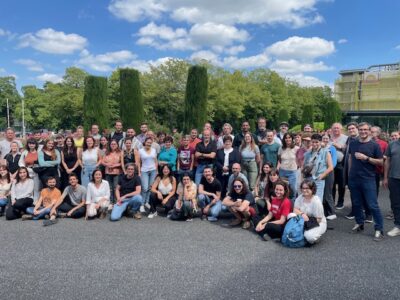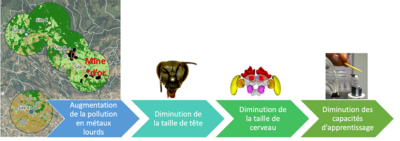Follow all the CRCA’s news !
1 2 3 9Antoine WYSTRACH, winner of an ERC Consolidator !
The ERC Consolidator RESILI-ANT project led by Antoine WYSTRACH (BeeAntCe -CRCA-CBI team) has just been funded!
The CRCA Scientific Day took place on June 4!
On June 4, all CRCA members gathered for the laboratory's Science Day.
Dopamine enables us to select the events we want to remember
Research by Lionel Dahan, Fares Sayegh and their colleagues from the CRCA-CBI has shown that dopamine neurons are at the origin of memory formation.
Heavy metal pollution affects the cognitive health of bees
Heavy metals, such as lead and arsenic, are naturally present in soil and water. However, human activities such as mining, metallurgy and car traffic have considerably increased their concentrations, exposing human and animal populations to potentially toxic doses that are still poorly assessed.
Collective self-medication in ants.
In this study, Eniko Csata, Alfonso Pérez-Escudero, Emmanuel Laury, Gérard Latil and Audrey Dussutour (CRCA-CBI) and their collaborators studied the role of nutrition in the host-parasite system: the Argentine ant (Linepithema humile) and the entomopathogenic fungus (Metarhizium brunneum).
How digital traces promote cooperation or deception in human groups?
Today, digital traces are widely exploited by social networks and online commerce on the Internet. In this work we show that in a non-competitive context, the use of digital traces favors the emergence of cooperation in a group of individuals performing an information search task. On the contrary, when the context becomes competitive, their use favors individualistic behavior and the exchange of unreliable or misleading information between individuals.






